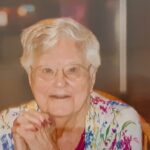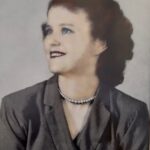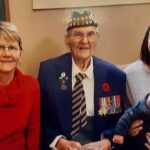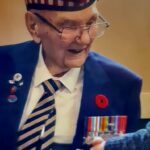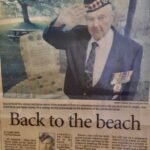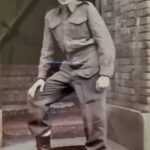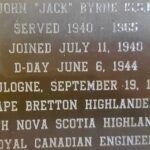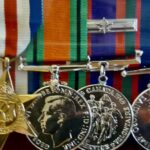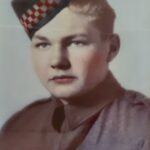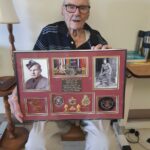Jack Byrne was born March 13, 1925 in Sydney, Nova Scotia. His parents had to come to Canada – from Newfoundland – just before his birth. Jack grew up in the Whitney Pier area of Sydney, and he remembers it fondly. When he saw footage of the Russo-Finnish Winter War, he was motivated to join up, even though he was only 15. As it turned out, the recruiter accepted him at his word that he was 18, and Jack was all of a sudden in the Cape Breton Highlanders. Training occurred at a number of locations in Canada, and by 1941 he was on his way to England. The convoy made it without incident, but they arrived in the middle of an air raid; still, in short order they were on their way to Aldershot. Jack was stationed in England for a number of years, and among other duties he served as a physical education and training officer in a demonstration platoon, assessing the new recruits from Canada and putting them through their paces with intensive weapons and combat-level training. He recalls that things really heated up getting into 1944; the invasion was clearly on the way. Training ramped up, complete with the many new weapons that were available. During that time Jack did intensive training with commandos in the Scottish highlands, and the men began to do practice runs in the landing craft. The day would finally come in early June; weather delayed by a day, but on June 6 they boarded the ships and crossed the Channel. Jack and the men of the 9th Brigade hit Juno Beach in the second wave, landing at approximately 10AM. It was their job to expand the beachhead created by the first wave. They made their way inland, and were soon tasked with taking the Carpiquet airfield near Caen. Jack quickly saw and experienced the brutalities of battle, and he was wounded himself while on a patrol. He made it through the Battle of Normandy though, fighting through Caen and Falaise as well. From there the Canadian army hugged the coast, with the goal of forcing the Germans to retreat while they opened up the coastal supports for the ongoing supply line. As part of that effort, Jack and the remaining men of his original platoon found themselves in Boulogne, France. Jack was badly wounded during the battle to take that city, raked by machine gun fire, but somehow he and another Canadian soldier managed to take a number of German prisoners. He then went to a regimental aid station and into a series of hospitals, where he’d spend the next two years, first in Britain and then back in Canada. Recovery was not easy for Jack: he had many physical obstacles to overcome, and his love of sports would prove to be a great aid to him there. He also sought the advice of a psychiatrist, as some memories of the war were proving difficult for him to leave behind. He did manage to do that though; the physical outlet of sports and his new wife and growing family put him on a new path. Jack Byrne was interviewed by Scott Masters at the Parkwood Veteran Centre in London, Ontario on March 25, 2023.
Videos
Click next video below to keep watching
